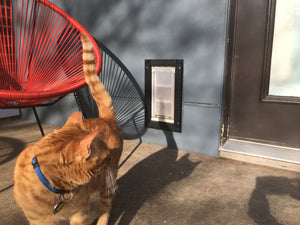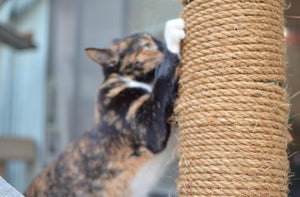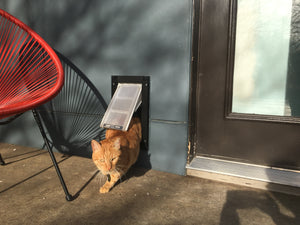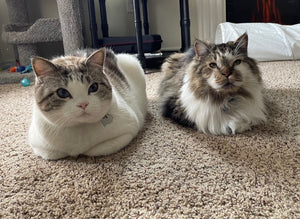Poison Prevention Awareness Month: Home Safety Tips for Pets
March is Poison Prevention Awareness Month. To honor this month and spread the word, we are dedicating this month’s first post to poison prevention and home safety tips for pets. Protecting your pets from harm can be simple, but sometimes the most simple pet safety actions are overlooked.

Often we don't know about poisonous food for dogs, or we accidentally leave something harmful in a place our pet can get to it (puppy proofing is essential!). Pet owners should always be aware of foods that are poisonous to dogs to prevent feeding them something that might make them sick. If you are ever unsure, call the pet poison control helpline! The ASPCA Animal Poison Control Number should do the trick (888) 426-4435.
Pet safety starts with identifying these potential dangers around your home. There are a number of everyday cooking ingredients that are bad for dogs, and knowing what they are could prevent potentially life-threatening situations! During poison prevention awareness month you can take these steps to make your home a safer place for your pets.
1. Store chemicals out of reach
Pets are like toddlers – curious, and always eager to touch and smell anything! They will get into everything – including cabinets close to the ground. Store household cleaners and other dangerous chemicals in a high cabinet or drawer out of your pet's reach. Follow the same procedure with insecticides, antifreeze, and other chemicals in your garage. Pets are attracted to the smells and flavors in many of these chemicals. They are highly lethal once ingested.
2. Avoid using human medicine and food
Dogs and cats are not designed to eat the same food or use the same medicines as people are. Although they might sometimes be convenient if an accident happens, do not give your pets human medicines to treat injuries or sickness. Human medicines can cause internal bleeding or organ failure. The same is true with many human foods. For instance, some people are wondering: can dogs eat lime? No! Limes are toxic to dogs (surprising, right?!).
Questions such as "is lime harmful to dogs" can easily be answered with a quick Google search, so don't hesitate to check if you are unsure! Another common worry: dog ate cough drops, what do I do? Best to call the ASPCA number listed above, some of the ingredients in cough drops are toxic for pets!
Also avoid feeding your pets foods such as chocolate, onions, grapes and raisins. Also keep them away from bones, especially chicken bones, as these can negatively affect a pet’s digestion. These foods can wreak havoc on their digestive system, shut down organs, and be lethal in even small amounts.
3. Eliminate toxic household plants
Plants add a nice touch to your home decor. The problem is they can also be a threat to your pet if they digest leaves from those plants. Common toxic houseplants include
- Amaryllis
- Azalea
- Caladium
- Golden Pothos
- Lilies
- Mistletoe
- Oleander
- Philodendron
Study up on which plants are pet safe indoor plants and buy those to brighten up your home or your outdoor garden.
4. Secure your trash
Garbage cans can contain a hodgepodge of toxic substances mixed together in a lethal stew. Smells of discarded food scraps and other items can draw a pet into the garbage and put them in danger. Secure your trash in closed containers that restrict your pet's access. Also avoid storing your garbage cans near pet doors or other places where your pet can find them easily.
5. Prepare a first-aid kit
Despite your best efforts, your pet may still end up ingesting a toxic substance. Put together a first-aid kit filled with items you can use to treat your pet in an emergency. Keep emergency contact numbers for your veterinarian and the local animal poison control center on hand. Some items you might want to consider adding to your pet first aid kit are: cotton balls and swabs, scissors, sterile gauze, bandages, first aid tape, hydrogen peroxide, antiseptic wipes, muzzle, leash, splint, styptic powder, latex gloves, blanket, copies of vet documents, bottle of water, thermometer, and self-activating hot and cold packs.
Understanding what is bad for dogs and taking these pet safety tips seriously can prevent life threatening illnesses and harm to your pet.




